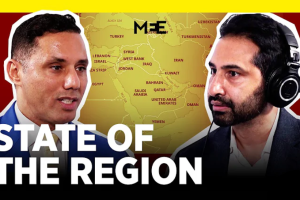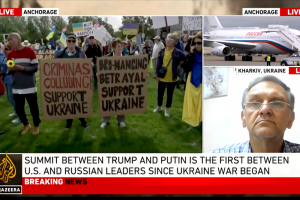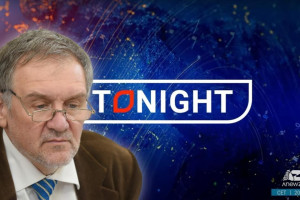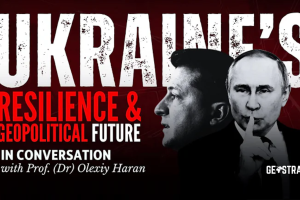Poroshenko to make repeat bid for U.N. peacekeepers in Donbas
Read more on UNIAN: https://www.unian.info/war/2117654-ukraines-envoy-estimates-costs-of-un-peacekeeping-mission-in-donbas-at-least-1-bln-a-year.html

REUTERS
By Mark Raczkiewycz
The Ukrainian Weekly
KYIV – Historically, Ukraine has been in the top tier of contributors to United Nations peacekeeping missions in conflict zones worldwide. Now, one of the intergovernmental body’s truce contingents might land in eastern Ukraine, where Russia has waged an unprovoked war since April 2014, a month after it illegally annexed the Ukrainian territory of Crimea.
Ukrainian President Petro Poroshenko was to leave Kyiv on September 15 to attend the 72nd session of the U.N. General Assembly, and he plans to address the U.N. Security Council next week.
At the podium, post-Soviet Ukraine’s fifth president is scheduled to repeat the proposal he made more than two years ago: to send U.N. peacekeepers to the war-torn easternmost regions of Donetsk and Luhansk amid two internationally brokered ceasefires that never took hold since February 2015.
Then, the West, namely Germany and France – which were integral in cementing a truce between Kyiv and Moscow – weren’t keen on the idea.
 “Ukraine wanted ‘security’ first with its borders restored, then the political part that would’ve given [more autonomy] to the Donbas,” Olexiy Haran, a political scientist professor at the Kyiv Mohyla Academy and research director at the policy center Democratic Initiatives, said over the phone. “But [Russian President Vladimir] Putin wanted political concessions to run parallel with security.”
“Ukraine wanted ‘security’ first with its borders restored, then the political part that would’ve given [more autonomy] to the Donbas,” Olexiy Haran, a political scientist professor at the Kyiv Mohyla Academy and research director at the policy center Democratic Initiatives, said over the phone. “But [Russian President Vladimir] Putin wanted political concessions to run parallel with security.”
Now, given that the two truces agreed to by France, Germany, Ukraine and Russia have failed, the West, including the U.S., is beginning to see the importance of Ukraine needing “security” first – including regaining control of the more than 400 kilometers of the border area neighboring Russia – before any political actions are taken, the professor added.
The renewed attention to peacekeepers surfaced on September 5 when Mr. Putin visited China and set out conditions for a mission to enter the Donbas. During a news conference, he initially supported the idea, but only along the 450-kilometer frontline with peacekeepers providing security exclusively to truce monitors from the Organization for Security and Cooperation in Europe (OSCE). Furthermore, he emphasized the precondition that peacekeepers would be present after both sides withdrew heavy weapons and Kyiv held negotiations directly with Russia’s proxies in the occupied Luhansk and Donetsk oblasts.
German leader Angela Merkel, an essential mediator in the failed peace process, subsequently said that she supported the idea, but that peacekeepers would have to be situated throughout Ukraine’s sovereign occupied territory, including at the Ukrainian-Russian border area that Kyiv no longer controls.
In turn, the Kremlin leader told Ms. Merkel on September 11 that “U.N. peacekeepers might be deployed in other parts where OSCE monitors work, but even this concession still leaves Russians to decide where monitors can go,” the Washington-based think tank Atlantic Council wrote.
Afterwards the U.S. buttressed the German chancellor’s assertion that the U.N.’s Blue Helmets also patrol the Ukraine-Russia border.
“However, I want to make it clear that such peacekeeping forces should have a broad mandate to maintain peace and security throughout the occupied territory of Ukraine, up to the border with Russia, including the border, in order to avoid deepening or consolidating the split within Ukraine,” Heather Nauert, a State Department spokesperson, said at a briefing in Washington on September 14.
That is what Mr. Poroshenko is expected to say at the U.N.’s Security Council next week.
“Poroshenko will talk about this, the specific mandate, terms and deadlines,” Prof. Haran said. “But there are pitfalls [that Ukraine must avoid], like giving legitimacy to the proxy forces in Donbas that are led by Moscow.”
 Russia’s leader foresaw the West’s bent towards first ensuring security for Ukraine before possible political concessions are made, so he took the initiative, said Oleksiy Melnyk, co-director of foreign relations and international security programs at the Kyiv-based Razumkov Center.
Russia’s leader foresaw the West’s bent towards first ensuring security for Ukraine before possible political concessions are made, so he took the initiative, said Oleksiy Melnyk, co-director of foreign relations and international security programs at the Kyiv-based Razumkov Center.
“Now, [at the U.N.] we might see a contest for support for Ukraine and Russia – most of it will be for Ukraine, but it’s not a guarantee of full backing because Moscow has veto power [in the Security Council],” he said by phone.
Mr. Poroshenko could also use arguments that Ukraine has traditionally been one of the largest contributors to U.N. peacekeeping missions, Mr. Melnyk added.
Ukraine has 539 military personnel engaged in such missions, according to the website of country’s Permanent Mission to the U.N., with 50 and 34 percent of them stationed in the Democratic Republic of Congo and Liberia, respectively.
Moreover, there are about 30,000 Ukrainians who’ve been auxiliary participants in U.N. peacekeeping missions as part of civilian or police units worldwide, Mr. Melnyk noted.
 Yet, Mr. Putin’s overall goal is to fuel the war within a “peacekeeping context,” stated Serhiy Taran, a political scientist and founder of Kyiv-based International Institute of Democracy.
Yet, Mr. Putin’s overall goal is to fuel the war within a “peacekeeping context,” stated Serhiy Taran, a political scientist and founder of Kyiv-based International Institute of Democracy.
“This isn’t a standard situation. Russia’s stance is a component of its hybrid war against Ukraine – it won’t be purely a peacekeeping mission,” he said. “It’s a ploy to get sanctions removed [or softened by the West]… it’s also a way for Putin to stay relevant, a person who needs to be reckoned with if peace is to be achieved.”
Moscow’s current U.N. resolution proposal looks more like another way for the world to see the Donbas war as an “internal conflict” and not the result of Russia’s war-mongering, Mr. Melnyk added.
“It’s another maneuver in the general context of war… and not a [real] peacekeeping mission… It’s like the Minsk [peace] agreement, it has nothing to do with peace, it’s an objective of war by Russia,” the foreign relations expert commented. “All other details [of the resolution] aren’t significant.”








